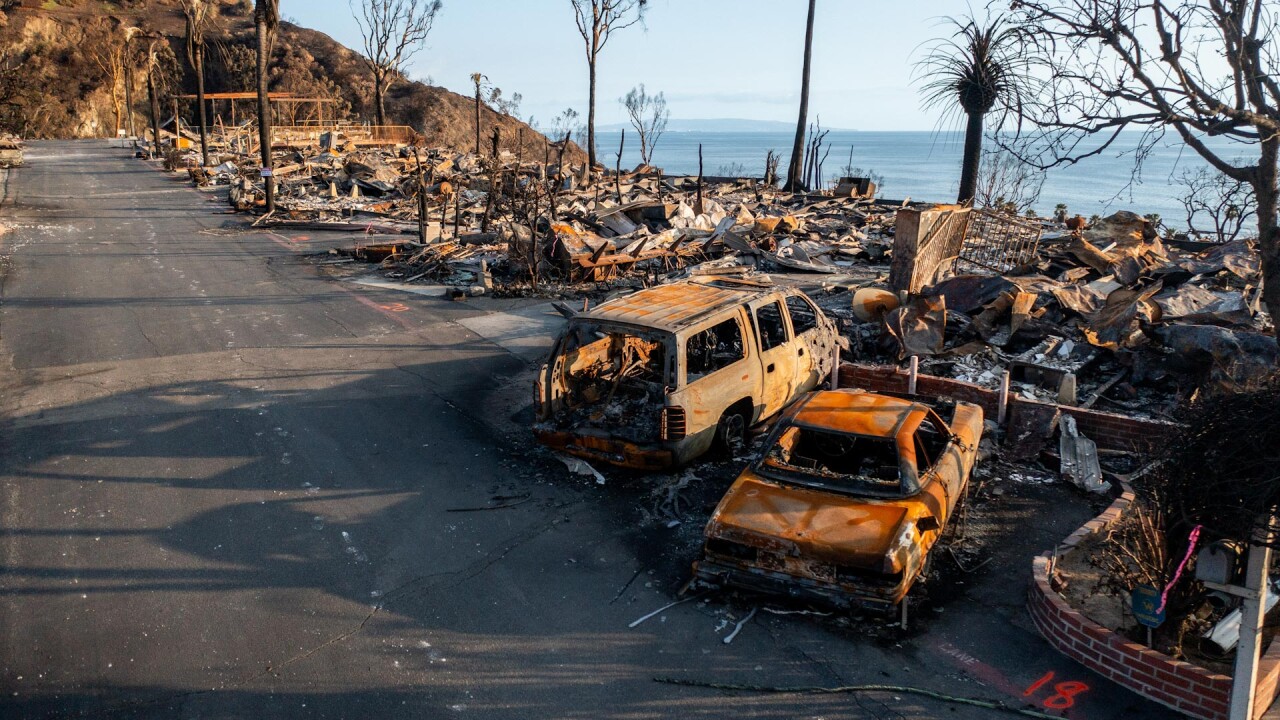DALLAS – Highland Park, Michigan says it shouldn’t be on the hook to repay $30 million of costs to the Great Lakes Water Authority, saying they stem from overcharges related in part to a bond sale and forward swap losses.
The city contends in a federal lawsuit filed Oct. 28 against the Great Lakes Water Authority, the Environmental Protection Agency, the Michigan Department of Environmental Quality and the Michigan Department of Transportation that the water authority has overcharged it by $17 million based on sewer rates set by a 1996 federal consent settlement agreement.
It also contends that a $2 million jump in sewer charges between 2012 and 2014 – a time when the city's population and use of services was on the decline -- is tied to a $659 million Detroit city bond issue in 2012. Charges for sewer services went from $4.8 million in 2012 to $6.8 million in 2014, $4.5 million more than the city owed under the settlement agreement, according to the city's legal department.
Proceeds of the bond sale covered forward swap losses that Highland Park claims were disguised as capital assets on GLWA's balance sheet. The debt was originally issued by Detroit Water And Sewerage Department. GLWA took over DWSD's debt in January this year.
The GLWA opened its doors Jan. 1, assuming Detroit's $5.5 billion water and sewer debt portfolio and taking charge of regional water management. Although the authority itself is nine months old, the management team has a four-year track record of financial and operational leadership dating to Detroit ownership.
Highland Park argues that The Clean Water Act limits sewer service charges to pass through capital costs for "replacement" of facilities.
"Forward starting swap contracts have nothing to do with capital replacement facilities," the city's legal department said in an e-mailed response. "A typical floating- to fixed- swap contract could arguably be related to a concurrently issued variable rate financing but with a forward starting swap no bonds are even issued when the swap is executed."
Highland Park alleges that GLWA has engaged in "an apparent massive cover-up of its financial mismanagement that has been passed on to wholesale customers as the cost of debt for replacement of capital facilities serving customers."
The suit says that "public disclosures show, however, that net capital assets, less long-term debt was a positive $338,447,314 in 2005, and by 2014 the net capital assets, less long-term debt, was a negative ($711,172,334). These facts strongly suggest an over one billion dollar loss from fiscal mismanagement passed through fraudulently as capital asset replacements in violation of the CWA."
Highland Park also alleges that the Michigan Department of Transportation's "deadbeat use" of city drainage structures from 1984 to 2005 without the payment of usage fees was an attempt to avoid regulation under the Clean Water Act and pay less in sewer operation maintenance and treatment costs. The city claims it is owed more than $10.7 million by the Department of Transportation for that usage of the city's infrastructure.
GLWA officials said they have not yet had an opportunity to fully evaluate Highland Park's complaint. Based upon its limited review, "the Complaint appears to be a repackaging of the same claims by Highland Park that have been rejected within Michigan state court," GLWA said in an e-mail.
Detroit Water had sued Highland Park over the payment debt and in 2015 won a $19 million judgment. However the city appealed the ruling based on the 1996 settlement agreement. The debt has in meantime continued to grow.
The GLWA absorbed the water and sewer bond debt from Detroit when it opened its doors January 1 and took over regional water management. It later asked Governor Rick Snyder's "personal intercession and involvement" to resolve the billing dispute with the city.
"The state is evaluating the litigation recently filed by Highland Park," said Snyder spokeswoman Anna Heaton. "We have been, and will continue, to work with GLWA and the city to attempt to resolve these issues."
GLWA has already taken actions to mitigate the consequences of Highland Park's continued non-payment on other customer communities by assuming in its budget that no revenues will be received for the services provided to Highland Park.
In May, GLWA said people living in Macomb, Oakland and Wayne County will have to pay an extra 3.2% for their sewer bills starting July 1 to help Highland Park deal with the debt.
Highland Park had its own water plant but shut it down in 2012 because of maintenance issues and other problems. The city first entered state oversight under a financial emergency manager from 2001 through 2009. In reentered emergency management in 2014 and exited in 2015.





